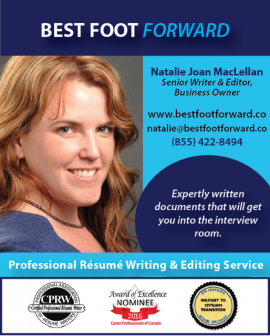Health and Wellness
Ombudsman’s Office releases report recommending CAF determine if military personnel is released due to illness or injury
The Office of the Ombudsman for the Department of National Defence (DND) and the Canadian Armed Forces (CAF) released a report on Service Attribution, recommending that the CAF determine whether an illness or injury is service related rather than leaving it on the released member to prove their disabilities to Veterans Affairs Canada (VAC).
“We recommend that the CAF determine whether an illness or injury is caused or aggravated by that member’s military service and that the CAF’s determination be presumed by VAC to be sufficient evidence to support an application for benefits,” stated the report.
Currently, releasing members receive benefits under the Canadian Forces Member and Veterans Re-establishment and Rehabilitation Act, also known as the New Veterans Charter. When applying for certain benefits, it is up to the members to prove first off that they have an illness or injury; that it is caused by or related to their services; and that it has led to a degree of disability.
These benefits also often take months before kicking in.
Close to 1,500 members are medically released each year with approximately 600 of those members being released due to illnesses and injuries directly related to their military service.
“As has been well documented by media over the past several years, medically releasing members often find the transition to civilian life to be very challenging. Those members requiring services from Veterans Affairs Canada (VAC) often find themselves uncertain about what, if any, services will be available to them when they depart the military. The complexity of the transition process adds angst to an already stressful situation for the member and the member’s family,” stated Gary Walbourne, Ombudsman for the DND and CAF.
Walbourne indicated that the CAF and DND can improve the method currently used to determine the eligibility of released members and reduce the wait time to receive benefits.
“My office has received numerous complaints from releasing service members who rightly question why a protracted bureaucratic process is required for VAC to review records prepared by the CAF when it is possible for the CAF to quickly determine whether a medically releasing member’s condition is related to, or aggravated by, military service. CAF has possession of all of the required information,” added Walbourne.
The report states that the CAF should be aware of a member’s health as they keep track of their health records and conduct medical fitness exams routinely. Therefore, they can best determine whether a member’s injuries or illnesses are caused by their service. The Forces are also in possession of non-medical information that can be important in making this determination.
“Yet the CAF has been reluctant to make such a determination despite the significance it would have for the medically releasing member who is applying for benefits,” noted the report.
According to the report, the Surgeon General of the CAF is hesitant to have its medical officers make a determination for VAC benefits because it goes beyond clinical care and can undermine the doctor-patient relationship. The concern expressed by the Surgeon General is that “a serving member may benefit from minimizing an injury/illness because of possible career implications yet would be advantaged by maximizing that same injury/illness for the purpose of a VAC application.”
However, a released member would not be taken care of under the CAF medical system and does not have to worry about career implications, states the report.
That is why the Ombudsman states that a shift in mindset is needed to ensure that medically released members are better taken care of. There is no law or policy within the framework of the CAF or DND to prevent this from happening it just “requires a willingness to rethink the status quo.”
Cutting out the lengthy bureaucratic process can help these members to transition to civilian life easier and receive benefits quicker.
“Any recommendation that challenges the status quo will likely find some resistance by those who are entrenched in the existing administrative processes or service delivery model. However, the model is broken as is evident from the plentiful media reports and the embarrassing statistics on service delivery. It is also very unfair to the medically releasing CAF member.
“Members and veterans are frustrated by the heavy administration, the duplication of effort, the lack of clarity, the onus placed on them to gather the proof from CAF for VAC to determine their entitlements, and the resulting delays in receiving their benefits. From a practical perspective, this has very real consequences on the lives of our medically releasing members,” stated the report.











